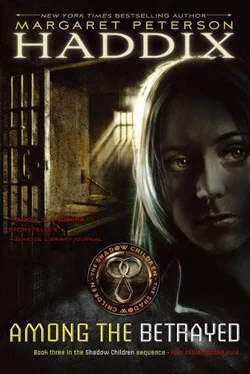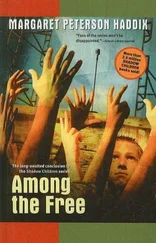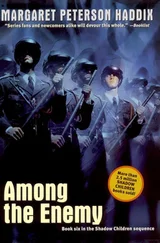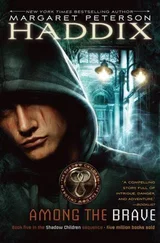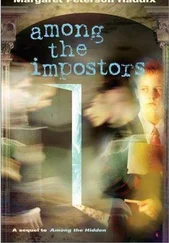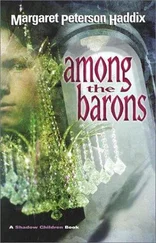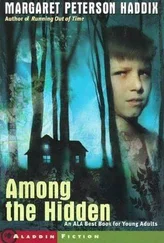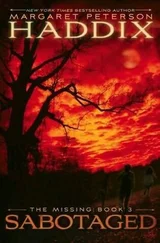Weakly Nina closed her eyes again. It didn't matter. She still had the man's image imprinted in her mind. He was tall and muscular and richly dressed, like someone on TV His dark hair waved back from a high forehead. He looked powerful, just as Jason always looked powerful. But Jason had never once looked at her with such hatred.
Nina remembered something Gran always said: "If looks could kill. ."
Looks can kill, Gran,
Nina wanted to say.
That look's going to kill me.
The man chuckled.
"I don't care if you talk or not," he said. "Your cohort already told us everything.
He cracked like an egg. I just thought you'd like the chance to tell us your version. Maybe your friend lied a little to save his own skin. To make himself look a little better and you, well, a lot worse. Guiltier. You know?"
The man was practically crooning in Nina's ear; his face was so close to hers that she could feel his breath on her cheek. Nina could barely think. What was the man talking about?
For a minute Nina didn't even understand the words he'd used—"cohort"? What was that? Then she remem' bered all the mystery novels Aunty Lystra had read aloud back home, on nights when the TV wasn't working. The detectives in those books were always accusing people of being "cohorts in crime." Cohorts were partners, helpers. Did he mean Gran and the aunties, who were cohorts in hiding her?
Nina barely managed to keep herself from gasping.
No! she wanted to scream.
You didn't catch them. You couldn't have!
Tears began streaming down her face, silently.
But the man hadn't said "cohorts" and "they" and "them." He'd said "cohort." "He." "Him."
Nina knew only one him.
No, she corrected herself desperately.
I met other boys from Hendricks School. Just because I didn't really know them, that doesn't mean they didn't betray me. In fact, it makes it more likely that they turned me in.
Nina thought about the guys she and her friends had sneaked out to meet in the woods at night. As a group, they were as skittish and timid as rabbits. She couldn't imagine any of them having the nerve to speak to the Population Police.
Except one.
No!
The denial slammed through her brain. Maybe she even screamed it aloud. Even if you forgot that Jason loved her, even if you forgot that he'd kissed her, secretly, by moonlight — he was an illegal third child, too. All of them were, all the kids who met in the woods. Even if they wanted to, it would be too risky for any of them to betray her.
Maybe it's my father, Nina thought bitterly.
Maybe Gran was wrong and he did know I was born, did know I exist. Maybe he thought he'd get a reward for turning me in.
Nina opened her eyes, angry enough now to face the hating man without flinching.
The man was smiling.
"Oh, Scott — or should I say Jason — had some very interesting tales for us," the man said cheerfully. "He made you out to be quite the operator."
Nina screamed. The sound echoed in her tiny concrete cell, one long wordless howl of rage and pain.
When she stopped screaming, the man was gone.
If morning came, Nina had no way of knowing it. She sat for hours, stiff and sore and heartbroken, huddled under the harsh light of the one bare bulb.
People always say that death's the worst thing that can happen to you, she thought.
It's not.
She wished the man had just killed her and been done with it. She could have died — well, not happily, but at least with something to clutch on to, something to believe in:
Jason loves me. Oh, Jason, my beloved, good'bye!
In the time since her arrest, she realized, she'd begun picturing herself and Jason as the kind of tragic, star-crossed lovers who inhabited Aunty Zenka's favorite books and TV shows.
Gran and the other aunties always made fun of Aunty Zenka for liking those books and shows.
"Oh, give me a break!" Nina could remember Aunty Lystra complaining one evening when Aunty Zenka was reading aloud by candlelight. "Why doesn't the beautiful, vivacious heroine just tell Jacques, 'Hey, you've got incur-able TB. Life's too short to hang around watching you die. Ciao!'"
"Because they're in love!" Aunty Zenka had protested. "And love is—"
"A load of garbage," Aunty Lystra finished for her. Aunty Lystra worked for the sanitation department. She was always comparing things to garbage.
Nina had felt sorry for poor, sentimental Aunty Zenka, who could get misty-eyed in the first seconds of one of her shows, with the first sentence of one of her books. But now Nina thought Aunty Lystra must be right. Aunty Lystra would think Nina had been a fool to trust Jason in the first place.
But he was so nice to me, Nina defended herself.
And he was so strong and handsome, and he knew so much….
For the first time Nina thought to wonder: How had he known so much? He'd known that the woods were a safe place to meet. He'd known about Harlow School for Girls. He'd known the exact right time of day to slip a note under the front door of the school, when the girls were walking to class. So a girl, not a teacher, would find his note.
Nina had been that girl. She lost herself, remembering. Two months ago, in the hallway at Harlow School, she'd scooped up a folded-over page that other girls had walked right past. She'd held the cream-colored, heavy-weight paper in her hand for a long moment, daydreaming about what it might be. She'd known it was probably nothing interesting, nothing that concerned her: a notice about electric rates, maybe, or a government edict about the size of spoons in the school kitchen. But as long as she didn't open it, she could imagine it was something exciting — like Cinderella's invitation to the prince's ball, perhaps. And since she was the one who'd picked it up…
The suspense had been too much. Nina had slid her fin-ger between the edges of paper, breaking the seal. Carefully she'd unfolded the page and read:
To all Harlow girls who are concerned about shadows:
Please join the like-minded students of Hendricks School for Boys for a meeting at 8 P.M… April 16, halfway into the woods between our schools.
Nina had never heard of Hendricks School. She had never been in the woods — any woods. Except for the day she came to the school, she'd never been outdoors at all. She was a little worried about the word "shadows." Did it mean what she thought it meant? Was this dangerous?
But Nina didn't really care. She knew instantly that she was going to that meeting. She would have gone if the note had said, "To all Harlow girls who are concerned about hammers." Or "fruit flies." Or "pencils." Or "prehistoric civilizations' development of canals and aqueducts" — the subject she'd just ignored in her last class. Nina felt like she'd been waiting her entire thirteen years to receive this invitation.
Convincing her friends was a little harder.
"We're not supposed to go outside," Sally said timidly when Nina whispered her secret after lights-out that night.
"Nobody ever said that," Nina argued, trying to keep her own panic out of her voice. If her friends refused to go, would she have the nerve to go alone?
"They never said, 'Don't brush your teeth with toilet water,' either, but that doesn't mean I'm going to do it," Nina's other roommate, Bonner, argued.
Sally was tiny and golden haired, and Bonner was tall and dark and big boned, practically burly. Since Nina was medium height and medium weight, with medium brown hair, she always felt like the link between the other two. When they walked down the hall together, Nina was always in the middle. When the other two disagreed, Nina was always the one who suggested a compromise. Having both the other two oppose her made Nina feel a little desperate.
Читать дальше
